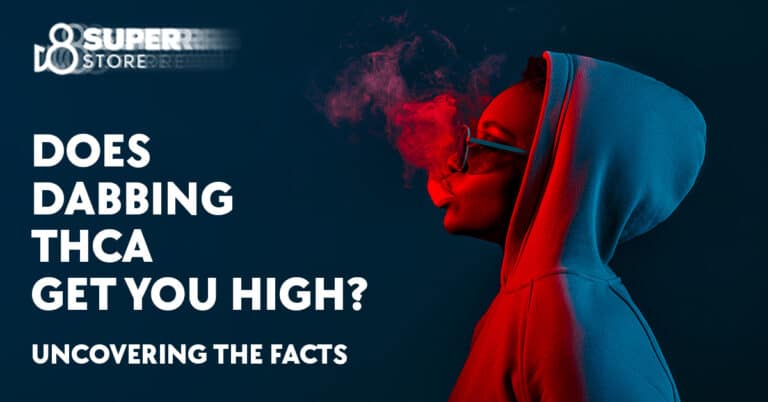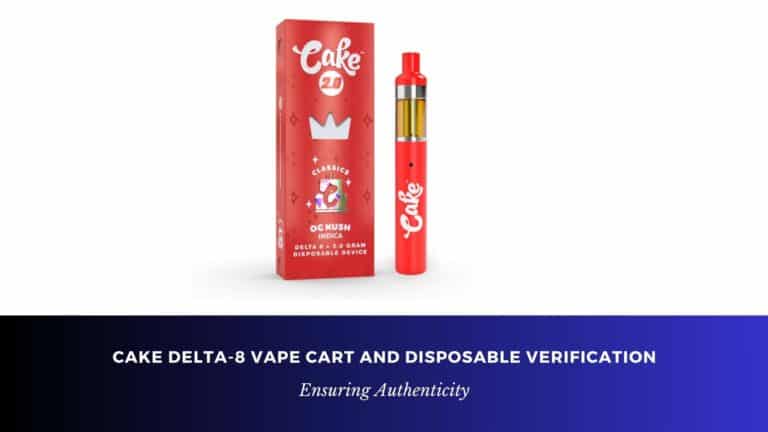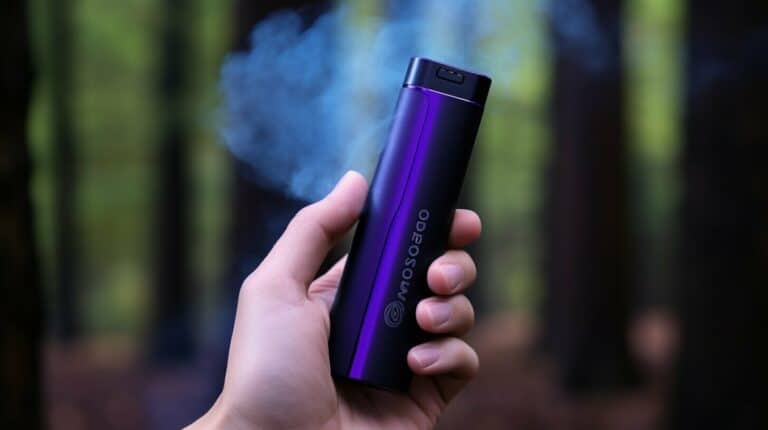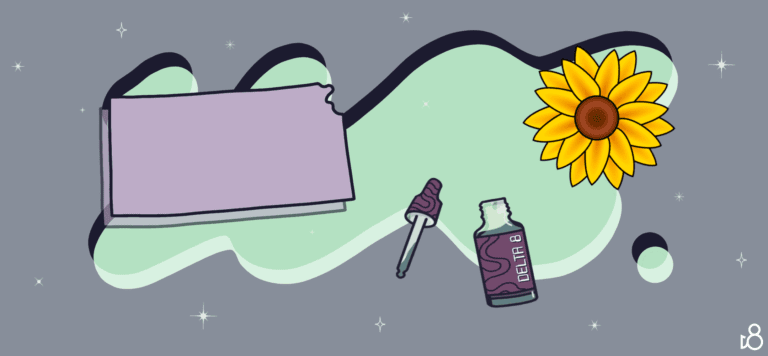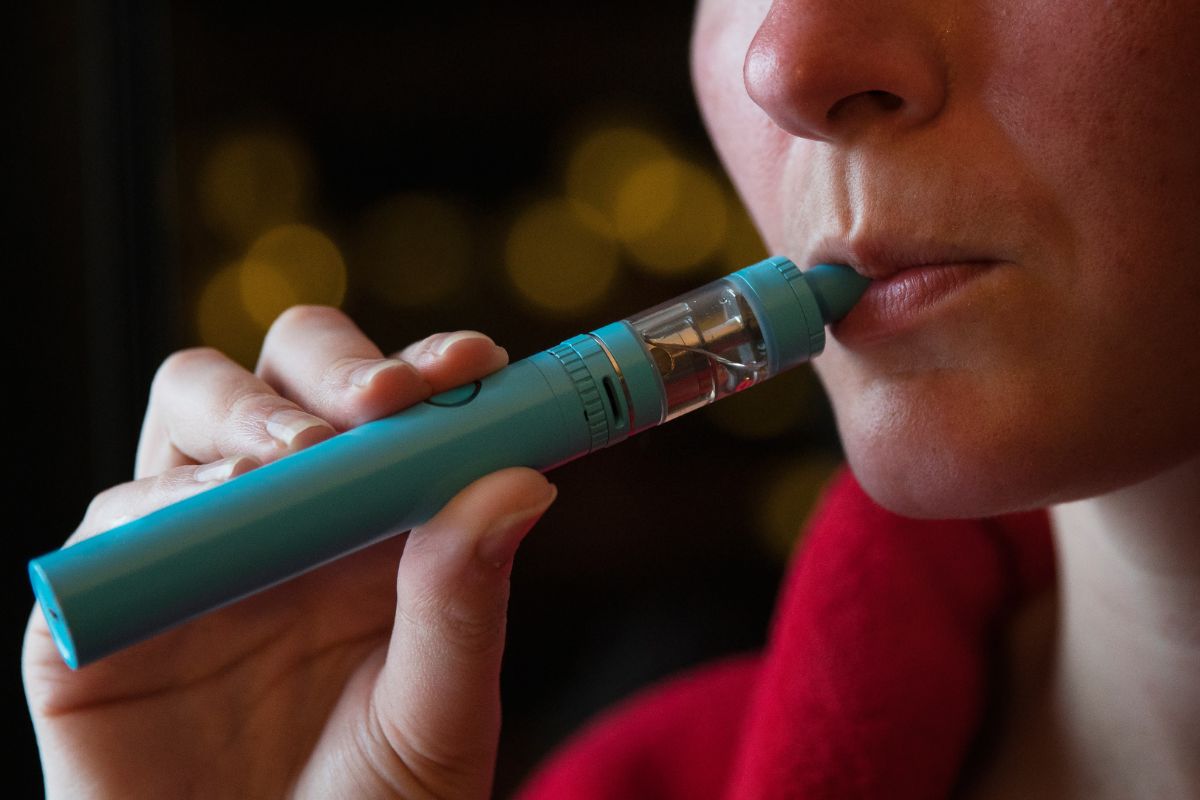Is Delta-11 THC Legal in Utah? Navigating State Cannabis Laws
Want to know how to enjoy Delta 11 THC in Utah without any hiccups? It’s pretty much navigating through a jungle of laws! You’ve gotta have eagle eyes to spot all the details about America’s general stance and Utah’s own twist on hemp-based goodies. Cheer up, because the 2018 Farm Bill made hemp stuff totally cool nationwide, as long as it sticks to under 0.3% Delta 9 THC. But here’s the kicker: each state calls the shots on whether you can have, grab, or trade these treats. Utah throws in its own spin, lining up with the country but sprinkling in extra bits on products like Delta 11 THC. Wondering if you can get your hands on this hemp thrill in Utah without any fuss? Stick around. The juiciest bits are just around the corner, and you’re about to uncover secrets that could totally make your day.
Table of contents
If you’re curious about whether Delta 11 THC is legal in Utah, it’s crucial to note that any form of THC may fall under scrutiny due to Utah HB 3001, which aligns with the Controlled Substances Act. It’s important to stay informed about the state’s specific stipulations regarding medical cannabis and how they may apply to Delta 11 THC. Since hemp-derived compounds can vary in their legal status state by state, Utah’s particular legal framework will dictate whether Delta 11 can be lawfully purchased or possessed within its borders.
Delta 11 THC Overview
Delta 11 THC is a cannabinoid with nuanced properties, much like its more famous counterparts, delta 9 and delta 8 THC. Understanding its chemical structure, psychoactivity, and production processes provides insight into its potential effects and legal standing.
Understanding Delta 11 THC
Delta 11 THC, or 11-hydroxy-THC, is a metabolite of THC, which means it is a compound that forms after the body processes THC. It is known for its potent psychoactive effects, which can be stronger than delta 9 THC, the primary compound in cannabis contributing to its high.
Chemical Structure and Psychoactivity
The chemical structure of delta 11 THC is similar to that of delta 9 THC, but with slight differences that significantly impact its potency and effects on the body. As a phytocannabinoid, its interaction with your endocannabinoid system leads to strong psychoactive results, potentially creating a more intense experience than delta 9 THC.
Comparison with Delta 9 and Delta 8 THC
- Delta 9 THC is the most well-known cannabinoid found in the cannabis plant, responsible for the classic high.
- Delta 8 THC has a slightly altered chemical structure, offering a milder high and less pronounced psychoactive effects compared to delta 9 THC.
- In contrast, delta 11 THC could provide a different approach to psychoactivity that hasn’t been as extensively studied or understood.
Extraction and Production
Extracting delta 11 THC typically occurs through sophisticated methods from either the hemp plant or the cannabis plant. The process often involves converting other cannabinoids into delta 11 THC using scientific techniques.
Cannabis and Hemp Plant Sources
Delta 11 THC originates from both cannabis and hemp plant sources. Industrial hemp may contain it in negligible amounts; however, concentrates and extracts can enhance its presence. Understanding the differentiation between hemp-derived compounds and those from traditional cannabis is key in navigating legality, including in places like Utah where regulations can be stringent.
Legality of Delta-11 THC
When exploring the legality of Delta 11 THC, it is crucial to consider the intricate nuances of both federal regulations and specific state laws, including those of Utah. The 2018 Farm Bill’s implications for hemp-derived compounds play a significant role in this analysis.
Federal Regulations
Under federal law, the 2018 Farm Bill distinguishes legal hemp-derived products from illegal cannabis substances. Specifically, hemp-derived compounds with a delta-9 THC concentration of not more than 0.3% on a dry weight basis are federally legal. However, Delta 11 THC falls into a gray area as it isn’t expressly mentioned, leaving room for interpretation by law enforcement agencies and regulatory bodies.
State Law Analysis
As federal law can be seen as a guideline, state laws often provide the specific regulations that determine the legal status of cannabis-derived compounds. State law differs significantly across the country with various degrees of restriction or permission concerning cannabis and its derivatives. These state-specific laws decide whether a compound like Delta 11 THC is deemed legal for production, sale, and use.
Utah’s Stance on Delta 11 THC
When examining Utah’s particular approach to Delta 11 THC, we find that the state has its cannabis regulations. In Utah, substances defined under the Controlled Substances Act, which include many forms of THC, are considered illegal. Therefore, unless specifically exempted by state law, it is likely that Delta 11 would be included under such prohibitions, given its classification as a tetrahydrocannabinol compound.
Availability and Market
When considering the landscape of Delta 11 THC in Utah, you need to be aware that, despite the complexity of cannabis laws, product availability and purchasing channels are crucial to understanding what you can expect from the market.
Delta 11 THC Products
Delta 11 THC, similar to its counterparts, Delta 8 and Delta 9, comes in various forms, adapting to different preferences and uses. As of current regulations, the legality and access to these products in Utah are highly regulated. If allowed, you typically find these offerings in a range of vapes and edibles, with flavors that cater to a wide palette. The diversity in products aims to provide options for both new users and connoisseurs.
- Vapes: Delta 11 vape products, when available, offer a discreet and convenient way to consume THC.
- Edibles: THC-infused edibles often come with clearly marked dosages, allowing for controlled consumption.
Retail and Online Shopping
Your shopping options for Delta 11 in Utah may be limited due to state regulations. If accessible, you need to navigate through both retail and online outlets for product availability. It’s important to verify the legitimacy of the sources, ensuring that they comply with state laws to avoid legal repercussions.
- Retail: Local dispensaries, if permitted to carry Delta 11 products, are your go-to venues to physically assess and purchase THC items.
- Online Shopping: While convenient, purchasing Delta 11 products online requires due diligence to ensure the products are legal and safely manufactured.
Before attempting to purchase Delta 11 products in Utah, you are strongly advised to check the most up-to-date legal status to ensure compliance with state laws.
Health and Safety Considerations
When considering whether Delta-11 is legal in Utah, it’s important to weigh the health and safety implications of its use. This includes understanding its potential benefits and how they measure against any risks. Ensuring that products meet safety standards is also crucial.
Potential Benefits and Uses
Delta-11, or 11-hydroxy-THC, is a compound that can offer various therapeutic benefits. Studies suggest that it may have a similar efficacy to Delta-9-THC in pain relief and antiemetic effects, without the psychoactive intensity. However, you should be aware that research is ongoing and definitive conclusions about its efficacy and applications are still being determined.
Side Effects and Risks
With the consumption of cannabinoids like Delta-11, you might experience side effects such as dry mouth, changes in appetite, or short-term memory disturbances. More significant risks involve impaired motor skills which could affect your safety, especially when driving or operating machinery. Always consider the potential for a positive drug test, especially if you are subjected to screenings for employment or other purposes.
Product Quality and Safety Standards
Lab testing is an important aspect of ensuring product quality and safety. You should look for products that have been lab-tested to confirm they meet regulatory safety standards. This not only verifies the concentration of 11-hydroxy-THC but also checks for contaminants. High-quality and safe products should provide a Certificate of Analysis (CoA) which details the presence and levels of cannabinoids and potential contaminants.
Consumer Insights
When exploring the nuances of Delta-11 THC, your perception is shaped significantly by the chosen method of consumption—vaping or edibles. Each modality affects onset time, intensity, and experience duration.
Experience with Delta 11 THC
Delta 11 THC, similar to its analogues Delta-8 and Delta-10, offers a psychoactive experience often characterized by euphoria and relaxation. When considering Delta 11 THC products, it’s important to understand that while the psychoactive effects may be less intense than Delta-9 THC (commonly associated with marijuana), they are significant nonetheless. The experience can vary greatly between individuals, influencing factors such as stress levels, overall mood, and even the environment in which you use Delta 11 THC.
Vaping versus Edibles
When you vape Delta 11 THC, the onset of effects tends to be quick, often within minutes. Vaping is known for its convenience and control over dosing, providing a discrete way to experience the effects of THC.
- Vaping:
- Onset: Rapid
- Duration: Shorter-lasting effects
- Control: Easier dose management
On the other hand, when you consume Delta 11 THC via edibles, expect a delayed onset as the product must pass through your digestive system. The effects might take an hour or more to be felt but often result in a more prolonged experience.
- Edibles:
- Onset: Slower (up to 2 hours)
- Duration: Longer-lasting effects
- Intensity: Potentially more intense due to metabolization
It’s essential to approach both methods with caution—start with a low dose, especially if you are new to Delta 11 THC or transitioning from Delta-8 or THC-O, as the psychoactive experience can vary. Always ensure that you are using products from reputable sources to avoid the risks associated with untested and potentially harmful substances.
Legal Implications and Testing
In Utah, navigating the legal landscape concerning Delta 11 THC is critical, especially since the repercussions extend to drug testing protocols that might affect your employment or transportation qualifications.
Delta 11 THC and Drug Tests
When you undergo a drug test, the focus is often on identifying THC metabolites in your system. Delta 11 THC may trigger a positive test result due to its similar chemical structure to Delta 9 THC, which is a controlled substance under the DEA’s regulations. Be aware that conventional urinalysis methods do not differentiate between different THC analogues, potentially leading to legal complications if you test positive.
Implications for Transportation and Employment
If you’re involved in the transportation industry or subjected to employment-related drug screening, testing positive for THC metabolites can have serious legal and job-related consequences. This is exacerbated by the fact that the legal status of Delta 11 THC in Utah is still in a gray area, despite state laws that prohibit cannabis. Your understanding of how Utah’s legislation aligns with federal law is crucial for maintaining compliance and safeguarding your career.
Comparative Legality in Other States
As you explore the legality of Delta 11 THC across the United States, it’s important to understand the varying state regulations. Some states have specific restrictions on Delta 11 THC, while others permit its use.
States with Delta 11 THC Restrictions
- Colorado: Although known for cannabis legalization, certain synthetic cannabinoids like Delta 11 THC may be regulated.
- Delaware: Cannabis is decriminalized, but Delta 11 THC remains under controlled substances.
- Iowa: Marijuana and its derivatives are illegal unless part of a medical program and Delta 11 THC is not included in that program.
- Idaho: All forms of THC are illegal.
- Kansas: Has no provisions for cannabis use; similar compounds would likely be regulated.
- Mississippi: Medical cannabis is limited to specific conditions, and restrictions on THC isomers remain.
- Rhode Island: While medical cannabis is legal, synthetic derivatives such as Delta 11 THC may be restricted.
States with Legal Delta 11 THC
- California: Cannabis is legal for recreational use and Delta 11 THC is likely permissible within state law.
- Oregon: A pioneer in cannabis legalization, the state has a permissive stance on THC variants.
- Washington: With legalized recreational cannabis, Delta 11 THC is generally not restricted.
- Massachusetts: Cannabis is legal for both medical and recreational use, indicating a lenient approach to Delta 11 THC.
- Michigan: Recreational and medical cannabis laws potentially allow for Delta 11 THC products.
The laws surrounding Delta 11 THC continue to evolve, so it’s critical to consult current state regulations if you are interested in possessing, using, or selling Delta 11 THC products.
Conclusion
When considering the purchase and use of Delta 11 in Utah, you need to be aware of the state’s regulatory framework. Legality is a complex aspect because cannabis-related laws are subject to frequent changes.
- Delta 11: As a THC analog, it’s assumed to be treated similarly to other THC products.
- Legality: Medical cannabis is legal with a card; Delta 11’s standing may differ.
- Safety: Always verify the safety of products through reputable sources.
- Availability: Limited by Utah’s cannabis laws; check local dispensaries.
Ensure that any cannabis product you consider buying, which may include Delta 11, aligns with Utah’s current legal statutes to avoid potential legal issues. Remember that compliance with state legislation is paramount.
Utah’s approach to cannabis and its derivatives emphasizes medical utility under specific conditions. If you possess a medical cannabis card, this does not necessarily grant you access to all THC products, potentially including Delta 11. Always consult with a legal expert or trusted authority to gain the most accurate advice on this matter.
Regarding safety and availability, prioritize products tested for quality assurance. Your health is paramount, and substances like Delta 11 should only be sourced from reputable, licensed sellers that conform to state regulations.
Frequently Asked Questions
This section provides clear answers to common inquiries about the legalities and effects of Delta 11, a cannabinoid similar to the more widely known Delta 9 THC.
What is the current legal status of Delta 11 in the United States?
The legal status of Delta 11 varies state by state and is subject to change as it’s a relatively new compound in the cannabis industry. It’s essential to consult up-to-date local laws for the most accurate information.
Can the consumption of Delta 11 result in a psychoactive high?
Yes, consuming Delta 11 can result in a psychoactive high, as it is a form of THC, the main psychoactive compound in cannabis. The intensity of the high may differ from person to person.
Are there differences in potency between Delta 11 and Delta 9?
Delta 11 and Delta 9 are both forms of THC and share psychoactive properties. However, there may be differences in their potency and effects which are still under research.
How does Delta 11 compare to Delta 8 in terms of strength?
Delta 11 is likely to be more potent than Delta 8, based on its chemical similarity to Delta 9 THC, which is known to be stronger than Delta 8.
Is it possible for Delta 11 to be detected in standard drug tests?
Yes, Delta 11 can potentially be detected in standard drug tests as these tests typically search for metabolites of THC, regardless of its specific form.
What should users know about the safety of consuming Delta 11 products?
Users should be aware that research on Delta 11 is limited, and the safety profile has not been established as comprehensively as for more common cannabinoids. It’s advisable to consume such products with caution.


